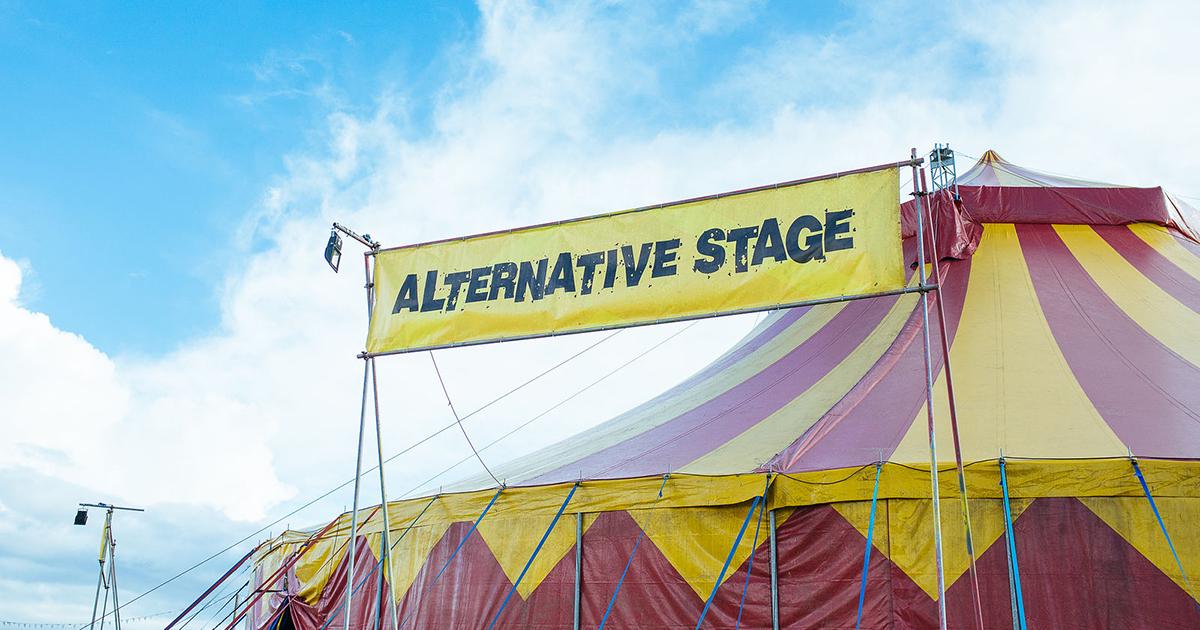The Cost of Coronavirus on the Music Festival Season Is Nearing $10B
To understand the gravity of the situation, we have to understand the nature of organizing festivals. It’s no walk in the park even for the most “traditional” ones, as the bookings are negotiated months in advance, and we’re not just talking headlining acts and ticket services. Everyone – vendors, technicians, photographers, agents, cleanup crews, coordinators, even social media managers – relies on a carefully calculated series of gigs for income, and let’s not even get started on the economic boost a festival provides to the entire local community. Losing one gig is tough, but can be managed. Having to reschedule several huge gigs to a vague point in the future and surviving until then is more akin to herding cats…while blindfolded…and also the floor is lava.
The current toll in numbers
To better monitor the situation, we quickly put up Sick Festivals, a free website tracking music festivals worldwide (which our platform already does) and displaying those that have been canceled and/or postponed due to the Covid-19 pandemic. This provides everyone, from fans and media to music professionals, with better insight into the new global reality.
This is what the situation was like on 1 April 2020:
Over 550 music festivals have been affected, mostly small-sized ones, according to the Viberate platform parameters. Out of 308 small festivals (up to 5.000 visitors), 144 of them have been canceled and 164 postponed. Medium-sized festivals (5.000–15.000 visitors) follow with 135 cases (68 canceled vs. 67 postponed), while mega-sized ones (over 80.000 visitors – think Coachella) have racked up six cancellations and 10 postponements. Based on our database entries, we estimate around 11% of all music festivals have been affected.
The Netherlands have the highest number of reported affected festivals. With 107 affected (81 canceled, 26 postponed), Dutch festivals top the list, followed by the USA with 75 festivals (24 canceled, 51 postponed), and the UK with 63 festivals (15 canceled, 48 postponed).
Obviously, April is the most affected month. Almost half of all affected music festivals – 230, to be exact – were scheduled to kick off the festival season this spring, but had to act fast with the pandemic boom mere weeks before. A total of 108 April festivals have been canceled, and 122 postponed. So far, planning for August remains optimistic, as only 1 cancellation and 1 postponement have been announced.

These numbers and calculations were made on 1 April 2020, but are sadly not a joke. For an updated number, check SickFestivals.com.
Judging by the users’ reactions (measured with the sad emoji), the top 3 festivals that will be missed the most are Coachella, Ultra Miami, and Glastonbury. While the first two have been postponed, Glastonbury had to cancel for the first time – and since this year’s tickets were sold out in a record 34 minutes, we imagine the blow to the happy festivalgoers and organizers was felt even more.
This brings us to the even heavier stuff: revenue loss. Warning, looking at the projected numbers is not for the faint-hearted.
How much revenue has been lost due to Covid-19?
With the data gathered via Sick Festivals, we calculated the estimated impact of the canceled and postponed gigs for all festival stakeholders.
- The estimated direct economic impact is $9.7B. June 2020 is the month that will feel the impact the most.
- 7.8M fans will not be attending their planned festival. That’s more than the entire population of New Zealand and Jamaica combined.
- Almost $3B will be lost in tickets, and most of the tickets will be lost for May’s events. This calculation was made for reported festivals who opted for ticket return. While some festivals (like the aforementioned Glastonbury) are rolling over the purchased tickets into 2021, the economic strain on the local businesses and charities is starting right now.

As these projections may change with time and additional festivals being affected, please feel free to contact us for the latest numbers.
Where do we go from here?
Such an impact will not be easy to recover from. If the recessions and crisis situations we’ve all lived through these past decades have taught us anything, it will take years to get back to the pre-crisis levels of output. We can predict a surge in activities and spending (i.e. concert attendance, buying merch, etc.) when things get back to normal and people are more than willing to enjoy spending time outside while supporting their favorite acts at the same time. But since everyone – organizers and attendees alike – will have to juggle expenses, the recovery period will take quite a while.
Viberate will help things get back on track
Whenever things do return to normal – and whatever this new “normal” will be – everyone at Viberate will do our best to assist artists and music professionals to get back to organizing the much-needed live gigs.
Two important steps lie ahead, especially for festival organizers:
1) Maintaining festival communities
Clear and agile communication with fans will be key. Consider an affordable and easily customizable Festival Apps mobile app, created for festival organizers, which eases promotional and communication efforts, and effortlessly feeds content from our APIs. Read more here.
2) Making reliable data-based decisions
With tighter budgets, there will be even less options for gut feelings and guesswork. Viberate's music analytics will offer insights into artists’ online performance and dig into local market stats. You can start your free trial HERE.
Festival App’s polling options will also speed up the process of finding out who’s popular right now and getting them on stage. You’re welcome to hit us up with any questions, or even request an “early bird” offer.
Cover photo: Michelle Roberts/Leeds festival 2018
Read this next:

Premium music analytics, unbeatable price: $19.90/month
11M+ artists, 100M+ songs, 19M+ playlists, 6K+ festivals and 100K+ labels on one platform, built for industry professionals.


